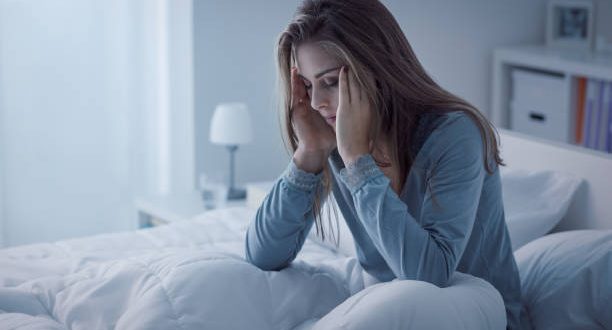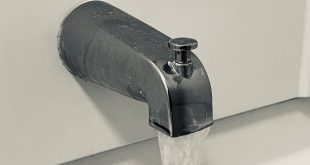If you notice that you are having trouble falling asleep or you feel restless and can’t fall asleep until 3 a.m., you may be dealing with insomnia.
According to the Sleep Foundation, insomnia is a sleeping disorder characterized as problems falling and staying asleep, or as problems waking up and staying awake.
Insomnia has many causes including:
· Stress, anxiety and other mental health disorders
· Lack of a sleep schedule or determent from one
· Unhealthy habits such as poor diet, frequent naps, too much screen time and too much caffeine intake
While these are not the only causes of insomnia, they are the more common ones.
Here are some helpful ways to cure or lessen the effects of insomnia:
1. Don’t eat late at night
According to the Sleep Foundation, eating heavy meals or spicy foods late in the evening causes struggles in the digestive process.
Eating too late can cause issues such as heartburn or indigestion, both of which may cause disruption in sleep.
Make sure to eat dinner two to three hours before you plan to sleep and to keep portions large enough to satisfy you but not make you overly full. However, if your dinner portions are too small, it may lead to late night snacking which has the ability to continue disrupting your sleep.
While it is best to stick to eating at or around the same time every day, do not skip a meal if you miss your intended time. Going to bed hungry has the same effect on sleep as eating too late at night.
2. Stop napping late in the day
As appealing as it may sound, napping around 4 or 5 p.m., throws your circadian rhythm out of line.
The circadian rhythm is the body’s internal clock that outlines sleep schedules and waking hours. By napping, especially later in the day, your circadian rhythm adjusts to a new schedule and causes you to stay awake longer.
If you need to take a nap, try doing it earlier in the day. If you need one later in the afternoon, set a timer for 30 minutes. This quick power nap will give you the energy to stay awake without disrupting your overall sleep.
3. Get off your phone
According to Blutech, college students spend eight to ten hours a day on their cellphones.
Cellphones and other devices such as televisions and laptops emit a high energy blue light that stimulates the brain, making it think that it is seeing daylight. This stimulation keeps you awake, especially when you are using a screen right before you go to bed.
Too much blue light also leads to eye strain and headaches.
If you struggle with insomnia but find yourself staying on your phone up until you try going to sleep, it may be the reason.
The best thing you can do is get off your phone – and away from a screen – 30 minutes to an hour before going to bed. It gives your brain a break from blue light and keeps stimulation low, making it easier for you to fall asleep.
If you find yourself unable to put your phone, laptop or TV away, invest in a pair of blue light blocking glasses. Not only will it help you sleep, but it will also lessen the strain on your eyes.
4. Cut back on the caffeine
While a cup or two of coffee in the morning or some soda during the day won’t mess with you too much, try to cut out the caffeine the closer you get to bedtime.
Caffeine is a stimulant that increases the activity of your brain, nervous system, adrenaline circulation and prevents drowsiness.
Caffeine blocks adenosine receptors, a chemical that induces sleep. Adenosine builds during the day, making you feel more tired the longer you’re awake. Caffeine keeps your brain from registering the chemical which makes you feel more awake.
If caffeine is disrupting your sleep, you should stop having it six hours before going to bed. This is because the body processes caffeine between four and six hours, according to the Sleep Foundation.
5. Stop sleeping in
Like naps, sleeping in disrupts your circadian rhythm.
Waking up early and at the same time every day will help you sleep better. While it may take some getting used to, it forces your body into a rhythm that helps you fall and stay asleep, giving you more energy throughout the day.
6. Herbal teas or warm milk
Herbal teas such as chamomile, lavender and even a low caffeine green tea help prepare the body for rest.
Chamomile especially is a good option if you are looking for a natural way to fall asleep since it has a sedative quality that relaxes the muscles and slows activity in the brain.
Like herbal teas, warm milk also helps with sleep, which means your grandmother wasn’t lying to you all those years.
According to the Sleep Foundation, milk contains the amino acid tryptophan. Tryptophan enriched foods and drinks help promote sleep by increasing the production of chemicals such as serotonin and melatonin, the hormone associated with the sleep cycle.
While herbal teas help with short-term insomnia, it may not be the best option for those who suffer from it long term. However, that doesn’t mean you shouldn’t try it, even if you just need to relax.
7. If all else fails, get some melatonin
While the body produces melatonin, it is also available in a supplement form.
The body’s natural melatonin is produced by the pineal gland in the brain. The pineal gland registers darkness and begins producing the hormone but stops once light is observed.
If you still struggle with insomnia, buying a melatonin supplement either in pill or liquid form may be a short-term solution.
Supplemental melatonin will help your circadian rhythm realign. While there are few notable side effects of taking supplemental melatonin, it is best to speak with your doctor if you are wary about taking it.
Some other ways to help with insomnia include:
· Meditation
· Lavender scents
· Warm baths or showers before bed
· Avoiding stimulating activities such as video games or work
If you need a long-term solution to insomnia, speak to your doctor about options such as prescription medication or cognitive therapies.
Written by Bailey Storey. Photo courtesy of iStock.
 The Spectator The independent student newspaper of Valdosta State University
The Spectator The independent student newspaper of Valdosta State University






